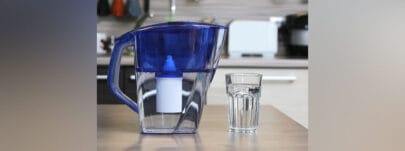
Why You Should Use Distilled Water in Your CPAP Machine
Countless people suffer from sleep apnea and without the proper treatment, this condition can lead to potentially serious consequences over time. Many industry experts will argue that the invention of the CPAP (continuous positive airway pressure) machine is an important step forward in treating sleep apnea.
CPAP units are now considered the “gold standard” in alleviating the symptoms of obstructive sleep apnea, the most common form of sleep apnea. The units are comfortable, easy to use and extremely convenient. If properly maintained, a CPAP can last for years at a time with few functional issues.
Not only are these machines able to provide a sound night of sleep, but many are equipped with built-in humidifiers. Moisture in the air can help to reduce annoying symptoms such as coughing and dry nasal passages.
However, did you know that the type of water can have an impact upon the lifespan of your CPAP? Let’s take a look at why it is best to avoid using tap water. We can then discuss some of the major advantages associated with distilled water.
Why is Adding Tap Water Never a Good Idea?
In truth, some CPAP users immediately turn to tap water due to the simple fact that it is the most convenient option. They can fill the reservoir in a matter of minutes. There are a few fundamental problems with this method.
Many of us are already familiar with the term “hard water”. This phrase is used to signify water sources (primarily from the tap) that contain:
- Magnesium
- Calcium
- Phosphorous
- Sodium
The problem here is that these same chemicals can eventually coat the interior of the humidifier as well as nearby surfaces (such as heating elements and filters). This is generally referred to as “limescale”. The end result is a CPAP that does not function as it should and in some cases, certain parts may even need to be replaced.
Additional Concerns
Depending on the source of tap water where you live, there may be other issues to address. For instance, some water could contain bacteria or chemicals such as chlorine. These can lead to health effects such as infections and respiratory irritation.
Bacteria that become embedded within your machine may even begin to replicate. Your lungs could be damaged and your sleep apnea symptoms may become worse.
Why Choose Distilled Water?
Distilled water is unique in the fact that virtually all particulate matter has been removed. It is therefore considered one of the purest forms of water on the planet. Many individuals prefer distilled water over tap water due to the fact that there is no harsh aftertaste.
The lack of dissolved mineral content likewise signifies that you will not have to worry about an accumulation of limescale over time. This helps to extend the lifespan of your machine and maintenance is a cinch.
However, it is still recommended to replace any water contained in your humidifier on a daily basis. This helps to eliminate the chances that any foreign contaminants (such as bacteria) begin to form.
Can You Boil Tap Water to Produce Distilled Water at Home?
This is a common question and it needs to be addressed before moving on.
Boiling water for an extended period of time is an excellent way to destroy any bacteria or similar pathogens that may be present. However, it will not remove chemicals such as magnesium, phosphorus or iron.
This is why distilled water is the best option. Distillation plants regularly examine their products to ensure that they meet the highest of industry standards.
Where Can You Find Distilled Water?
The good news is that this type of water is readily available. It can normally be found at grocery stores, gas stations and even some hardware stores. You can also purchase distilled water online in bulk when needed.
Pure Water for Sound Sleep
If you are one of the many people who utilize a CPAP equipped with a humidifier on a regular basis, always make it a point to use the correct type of water. Not only will this help to further alleviate your sleep apnea symptoms, but you can dramatically extend the lifespan of the machine itself.
Sources:
https://www.cpap.com/blog/cpap-water/
https://www.verywellhealth.com/do-you-need-distilled-water-for-the-cpap-humidifier-3015017



